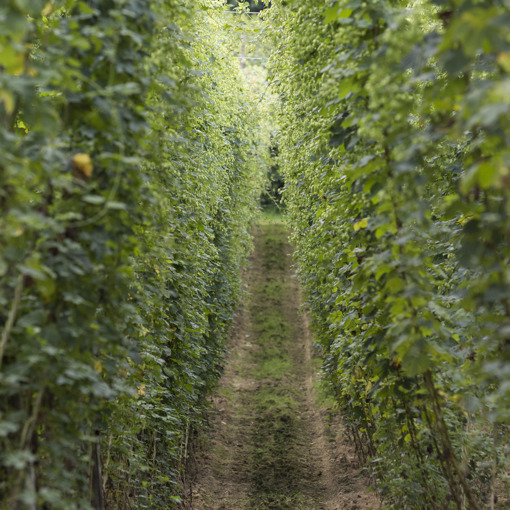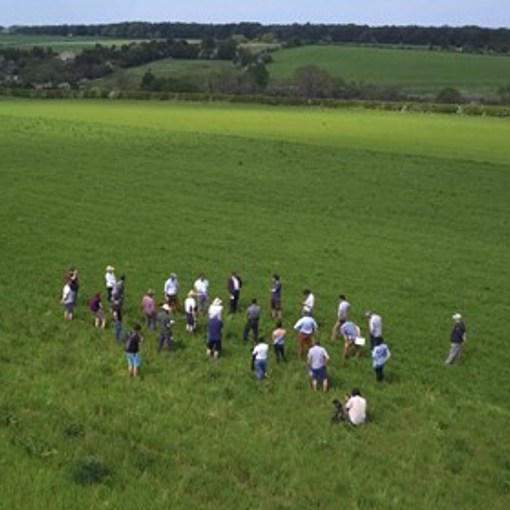Why Strip-till?
A strip-till system offers a number of benefits, including less soil disturbance, less compaction and better soil health, and is now used widely in regenerative arable systems. It has also been applied successfully in conventional field-scale horticulture.

Jake Harris shows his strip till brassica crop to a group of farmers
Challenges of Strip-till
While one of the main challenges is managing the cover crop without the use of herbicides, there are a number of pioneers using strip tillage in organic systems, including growers like Jake and Leah who used their Horizon SPX for the first time last year. They spring-sowed a cover crop of phacelia which was then disced off. They then strip tilled brassicas into the field.
Unanswered questions
At the Devon gathering, growers and farmers shared their experiences of using strip-till and - despite the experience in the group - many unanswered questions were raised. These included:
- What is the best cover crop? An annual or a living mulch?
- How do you manage the cover crop to optimise its benefits?
- How do you control weeds without herbicide?
- How do you manage the trash?
- Can strip till improve crop resilience in the face of climate change and more extreme weather patterns?
- Can you demonstrate a positive effect on soil health, structure and erosion?
- How do you build and maintain fertility in the crop?
- How can you integrate livestock?
- Do you always strip till into the same strips? Or move them frequently?
- Can the system work with difficult rotations?
There are enough questions here for a dozen field labs! The next task for John English - Soil Association Horticultural Advisor, and coordinator of the field lab - is to work with the prospective triallists and researcher, Francis Rayns at the Centre for Agroecology, Water and Resilience, to identify the question which is most pertinent to growers and can be studied in the context of a field lab.

The group discussing their experiences and asking questions
Future events
We were disappointed not to be able to reach out to growers further north for this event. To remedy this, we’re planning an online event in February and possibly holding a further knowledge exchange event in the north in the spring - keep an eye out for details on the Innovative Farmers website and in our newsletter.
Related news

25 July 2022
Celebrating farmer-led research
Celebrating 10 years of Innovative Farmers

30 June 2021
Nature friendly pest control
Farmers collaborate to find hop varieties for a growing sustainably produced beer market

18 January 2022
Celebrating farmer-led research